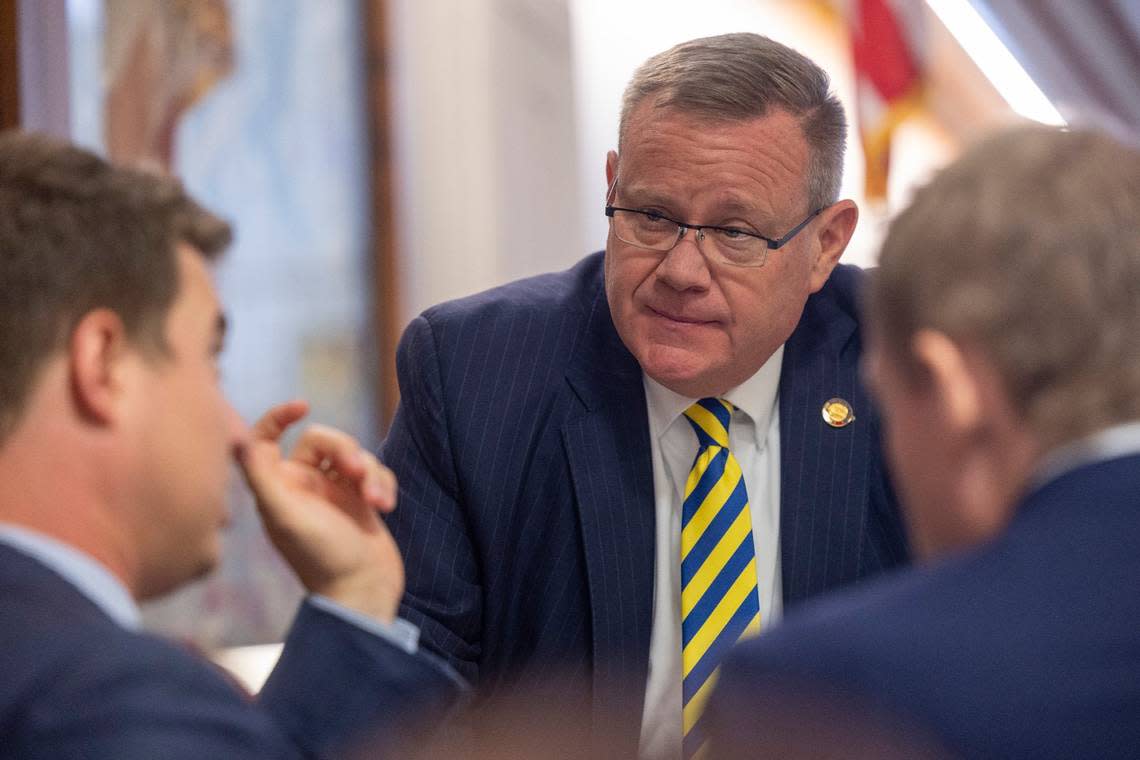As budget talks between NC Republicans break down, House to move its own version forward

It is House vs. Senate in the latest North Carolina state budget battle.
Now the House might vote on its own — yet to be revealed — budget next week. Republican leaders have total control of the General Assembly, so the House and Senate supermajorities work out deals together on a budget adjustment bill.
Republican House Speaker Tim Moore said that negotiations have broken down with Republican Senate leader Phil Berger over passing a compromise budget adjustment bill this session.
The state already has a two-year spending plan passed in 2023 that allocates money for raises, district projects and other funding, but typically passes an adjustment bill in even years, during the legislative short session, ideally by the new fiscal year start of July 1.
Some raises coming July 1 anyway
As sure as June is here and the summer sun shines down, the budget will likely be late again.
Most state employees are set to get 3% raises starting July 1, The News & Observer reported, but Moore wants to see additional raises for some workers as well as a bonus for retirees.
“We’ve reached a really tough point in negotiations. And the House is really committed to making sure that we do something for our state employees and for our teachers. And we don’t have the Senate there,” Moore told reporters after the House session on Tuesday.
“And we feel like it’s important, if nothing more, than to go ahead and make a statement. So we’re going to move forward with a budget on the House side. I’m hopeful that we’ll be able to get a resolution with the Senate as well,” Moore said.
He described pay for state employees and teachers — “our new teachers as well as veteran teachers” — as the sticking points.
Moore wouldn’t say what else are priorities for the chambers in budget talks, but Berger told reporters on Thursday that the House wants to spend more money from savings than the Senate does.
“The problem, as we see it, is that the extra billion dollars that we’re projected to collect should be a gracious plenty to handle the things that we need to do, over and above the budget that we just adopted several months ago,” Berger said.
‘Significant differences of opinion’
Moore said that while House leaders will continue to negotiate with the Senate, he intends to move a budget bill through committees and to the floor for votes sometime next week.
Asked what the House would do if the Senate decided to just adjourn and not pass a budget adjustment bill, which isn’t required, he said the Senate is “entitled to take whatever position they would like.”
“My goal is to work to come up with a budget, a consensus budget with my friends in the Senate. But we do have some significant differences of opinion,” Moore said.
He said that Republican leaders wanted to reach a consensus, as opposed to theprocess of the House and Senate taking turns presenting and passing budget bills before a final deal is made behind closed doors. That process gives the public more time to read the budget proposals and comment during public committee meetings, usually over several weeks. When negotiators only produce what is known as a conference report, only the negotiators know what is being decided until the final bill is revealed.
Moore said the conference report process was “more efficient” than passing separate bills first.
As far as the House moving ahead this time without the Senate’s input, Moore said that he and other House budget leaders have agreed that “this was the best course of action.”
The 2023 budget was more than three months late because of a breakdown in negotiations between the House and Senate.
In previous budget years, before Republicans gained a veto-proof supermajority, the battle was waged between Republican leaders and Democratic Gov. Roy Cooper.
Under the Dome
Get the latest news about North Carolina politics from The News & Observer's award-winning team. Get the free digest sent to your inbox by signing up here.
